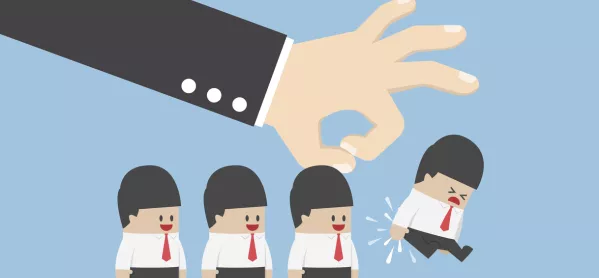Want to keep up with the latest education news and opinion? Follow TES USA on Twitter and like TES USA on Facebook
Back when he was running GE, Jack Welch famously argued that leaders should fire the bottom ten percent of their workforce each year, as part of an orderly continuous improvement process. Although Jack left GE in 2001, his legacy lives on and some think it should be applied to the teacher ranks.
In New York, each teacher must now have one independent observation by an administrator who does not work in the same school. While it may not be stated directly, the purpose is to ferret out friendly relationships between principals and teachers that serves to protect poor teacher performance.
This came to pass after the new teacher evaluation system failed to tag many teachers as ineffective. In New York 96% were rated effective or highly effective in 2015. The thinking is, if businesses can fire ten percent a year, how is it that schools only fire very few?
Another assumption implicit in this plan is that there is a line of better teachers around the block waiting to take the jobs of the bad teachers we fire.
In bigger districts, the independent observation tasks fall to central office administrators who qualify as they don’t work in the same school. Smaller districts can resort to asking the elementary principal to observe the high school and visa versa. This, however, puts an additional burden on principals who are already over their heads with daily demands.
Another option is to hire someone from the outside who is truly independent. Such observers would invariably be retired administrators like myself.
This year I was hired by a small district for this purpose. So far, I can report that I’m not finding bad teachers. In fact, the first 30 teachers I observed are all solid performers.
I suspect that the same will apply to other schools, much to the disappointment of Governor Cuomo and his corporate donors who have much more influence than they deserve in my opinion.
It seems that corporate leaders like Bill Gates and the politicians that they donate to think they know more about education than people with true expertise in the field.
I have been an educator since 1970, have an earned doctorate in educational theory and practice, and more publications than I can count. I maintain therefore, that people like me should be driving instruction rather than people who keep score by counting how many widgets they sell each quarter.
I’ve published other articles that suggest ways we can improve our current education system from the one-size-fits-all approach to more personalized learning (http://bit.ly/2dI0Xgf). The increased effort to find more bad teachers, however, isn’t one of them.
References
Taylor, Kate. Cuomo Fights Rating System in Which Few Teachers Are Bad, The New York Times, March 22, 2015, posted at http://nyti.ms/2i0lSt0.
Brown, Paul B. Should You Fire 10% of Your Employees Every Year? Inc Online, http://on.inc.com/2i0kcj8
Douglas Green is a former school principal, administrator and university lecturer, who runs the drdouggreen blog with ideas to support busy parents and teachers. He tweets at @drdouggreen




